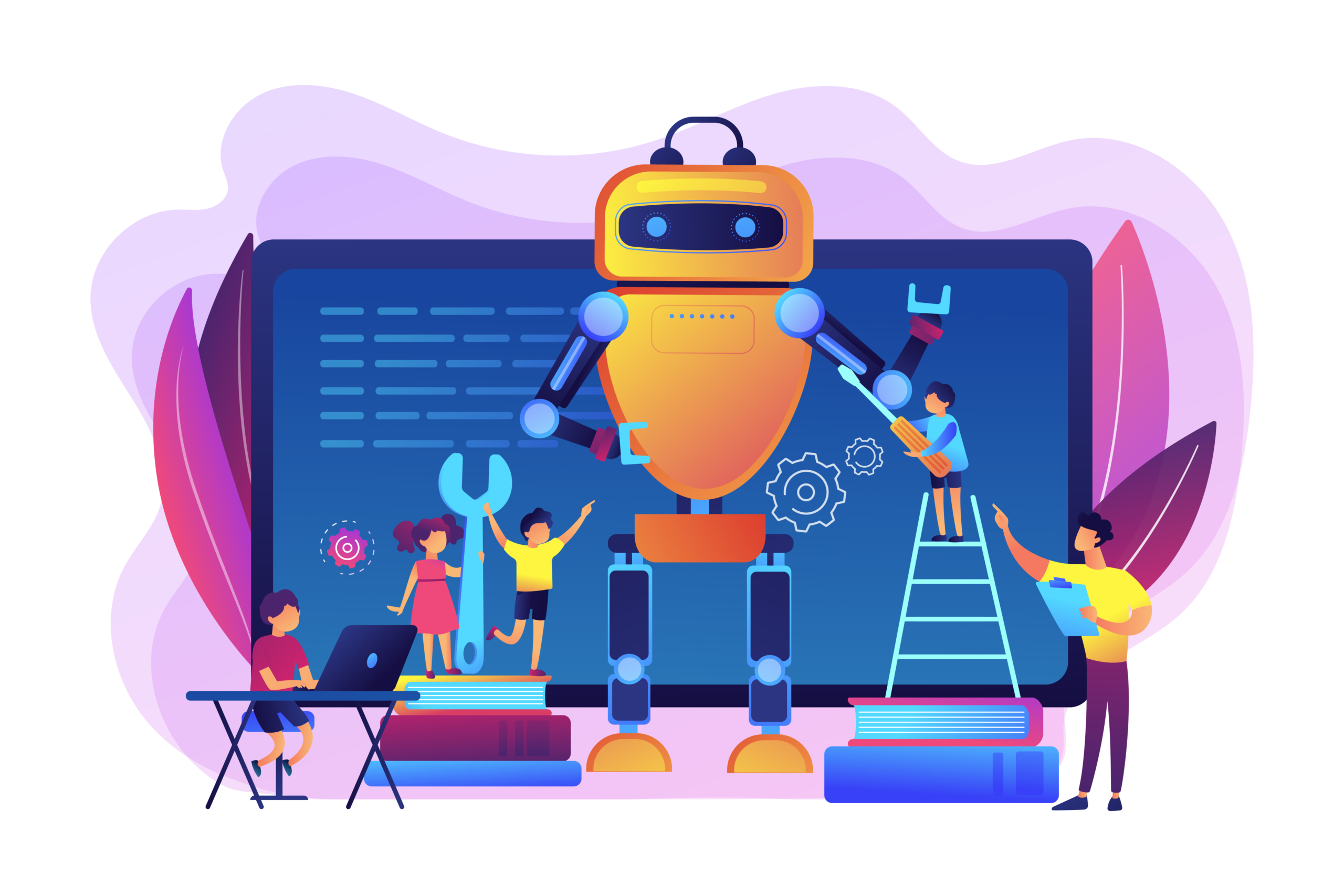The Difference between AI and Machine Learning—LMS Applications
The Difference between AI and Machine Learning—LMS Applications
In today’s digital world, rapid technological advancements have paved the way for innovative eLearning solutions, making it easier for organizations to train employees and share information. A major driving force behind cutting-edge learning management systems (LMS) is the integration of artificial intelligence (AI) and machine learning (ML) technologies.
Although often used interchangeably, AI and ML are distinct concepts with separate applications and implications for LMS platforms. In this article, we’ll dive into the differences between AI and machine learning and their applications in LMS.
Artificial Intelligence: The Power of Intelligent Systems
Artificial intelligence is a broad term encompassing the development of computer systems capable of executing tasks that typically require human intelligence. Think of AI as a computerized system that imitates cognitive functions, such as problem-solving, learning, and decision-making, to perform tasks that were once exclusive to human beings.
AI-powered LMS platforms offer numerous benefits over traditional learning systems, such as enhanced user experiences, personalized learning paths, and more effective assessment methods. By simulating human cognitive abilities, AI technology enables LMS platforms to:
- Analyze data and make predictions based on past performance
- Adapt to learner’s needs to deliver personalized learning experiences
- Facilitate real-time feedback and support during the learning process
- Evaluate and monitor learner performance to improve learning outcomes
Machine Learning: Machines That Learn from Data
Machine learning can be considered a subset of artificial intelligence, where AI is the general concept of creating intelligent systems, and ML is a specific approach to achieving AI. In other words, machine learning is the process through which computers learn and improve their performance over time without explicit programming.
ML algorithms use statistical methods to identify patterns in large datasets and make predictions based on the input data. As the system learns from new data, ML algorithms enable computers to adapt, adjust, and optimize their performance autonomously.
In the context of LMS applications, machine learning can:
Identify learner’s patterns, preferences, and behaviors to create personalized learning experiences
Automate the process of content curation and recommend suitable learning resources
Analyze learner assessment data to identify areas of improvement and offer targeted learning interventions
Evaluate the effectiveness of instructional materials and improve course designs
AI and ML Integration in LMS: Real-World Applications
Now that we’ve established an understanding of AI and ML technologies, let’s explore how they integrate into LMS platforms and impact eLearning practices.
Personalized Learning Experiences
AI and ML-powered LMS platforms constantly collect data about learners’ interactions, preferences, and progress. The system can adapt and personalize learning content by analyzing this data, presenting learners with the most relevant material, and delivering an individualized learning experience.
Intelligent Tutoring Systems
AI-driven LMS platforms enable the creation of intelligent tutoring systems (ITS) that provide real-time support to learners. These systems can answer questions, provide feedback, and offer hints or guidance throughout the learning process. By simulating the role of human tutors, ITS enhances the learner’s engagement and ensures a more immersive learning experience.
Predictive Analytics and Course Recommendations
AI and ML algorithms analyze learner data to identify patterns and relationships, allowing the LMS platform to predict learners’ future performance and likely outcomes. This information can be used to suggest personalized learning paths or recommend additional courses and resources likely to benefit individual learners.
Learning Analytics
Learning analytics involves collecting and analyzing data from LMS platforms to inform decision-making and optimize the learning process. AI and ML-powered LMS platforms support advanced data analysis, allowing administrators and educators to gain deeper insights into learner performance, engagement levels, and areas for improvement.
Conclusion
While AI and machine learning are distinct concepts, their integration in LMS platforms has a significant impact on eLearning practices. David Ealy Technologies understands the importance of harnessing these cutting-edge technologies to deliver personalized learning experiences and improve learning outcomes.
Our full-service eLearning consulting firm specializes in LMS, learning project management, and eLearning development, offering innovative solutions to businesses and organizations looking to leverage the power of AI and ML technologies in their learning strategies. If you need help with LMS integration, our skilled professionals are more than happy to assist. Reach out to us to get started!





